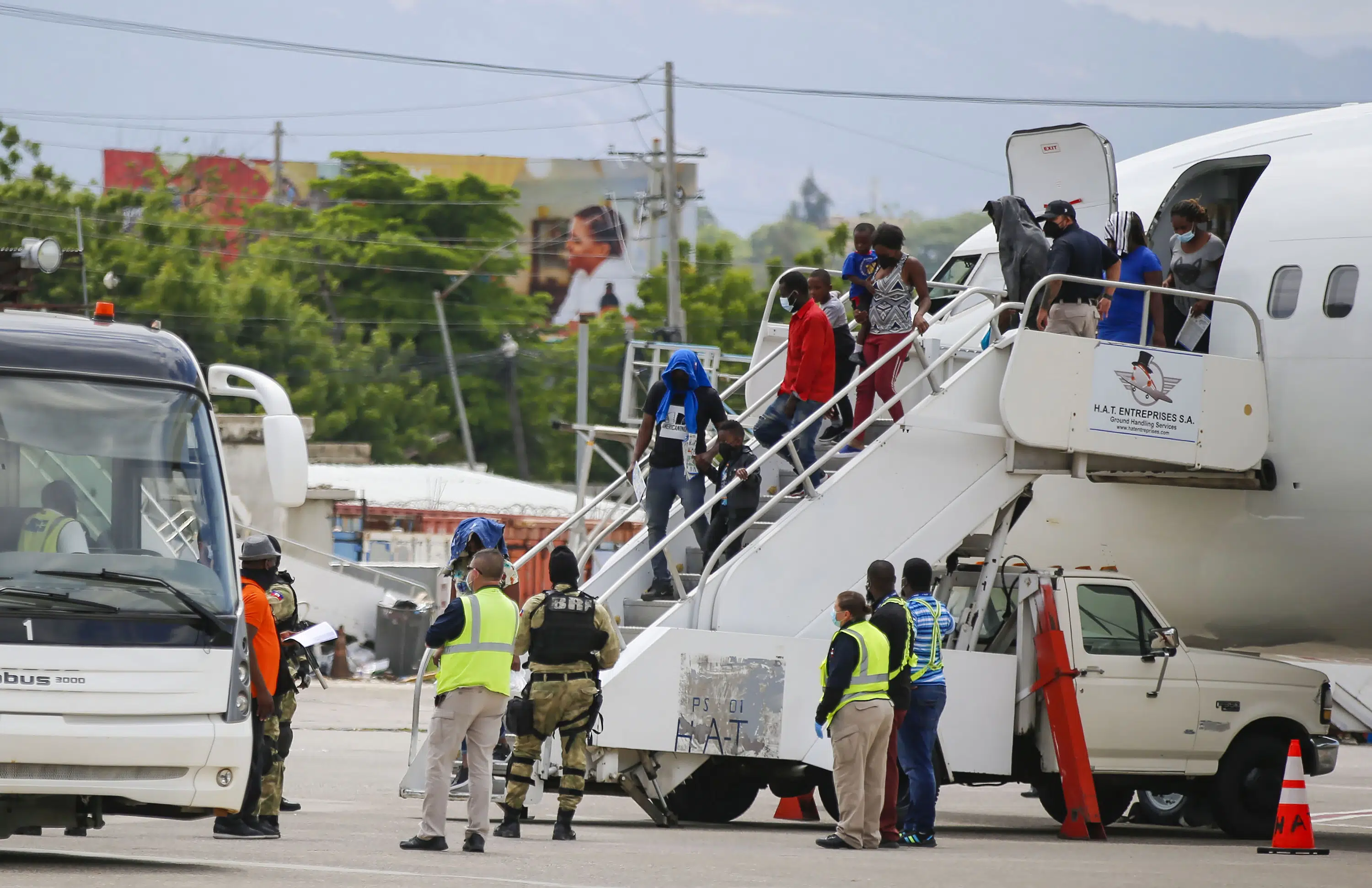
Stop deporting Haitians on the move in Americas, UN Committee warns
The UN Committee on the Elimination of Racial Discrimination (CERD) today called on State parties in the region to suspend forced returns and adopt measures to protect Haitians on the move, after 36,000 people of Haitian origin were deported during the first three months of this year.
In a statement issued today under its early warning and urgent action procedure, the Committee said it was deeply concerned about the collective expulsions of Haitians without a proper assessment of the protection needs of each individual case, including pregnant women, new-borns, unaccompanied children, victims of trafficking and gender-based violence.
It also expressed grave concern that people of Haitian origin are reportedly victims of excessive use of force, cruel, inhuman and degrading treatment, and racial profiling by law enforcement officials of some States parties in the Americas region.
The Committee raised alarm over alleged human rights violations and abuses against Haitians on the move at borders, in migrant detention centres, as well as along perilous migration routes in the Americas region, as a result of strict migration control, the militarisation of borders, systematic immigration detention policies and the obstacles to international protection in some States parties in the Americas region.
Such obstacles exposed these migrants to “assaults on their life and security, killings, disappearances, acts of sexual and gender-based violence, and trafficking by criminal networks,” the Committee warned.
The Committee was also alarmed by reported increases in hate speech and racist or xenophobic violence against Haitians on the move, including by public figures and political actors.
According to International Organization for Migration (IOM) reports, from January to November 2022, almost 22,000 Haitians were repatriated, with the U.S. repatriating nearly 15,000 of them. The scale of expulsion is rapidly expanding this year. IOM figures show that 36,000 people of Haitian origin were repatriated by air, land and sea from January to March, among whom approximately 90 per cent were deported from the Dominican Republic.
Caribbean countries, such as the Bahamas as well as the Turks and Caicos Islands, have announced crackdowns on undocumented Haitian migrants. The U.S. in January also made public new border policies to permit fast-tracked expulsions to Mexico of Haitian migrants and others crossing the U.S. southern border.
In light of the dire situation in Haiti, which does not currently allow for the safe and dignified return of Haitians to the country, as pointed out by the UN High Commissioner for Human Rights, the Committee called for an end to the collective expulsions of Haitians on the move and assessments of each individual case to identify protection needs in accordance with international refugee and human rights law, with particular attention to the most vulnerable groups.
It also requested States parties in the Americas to investigate the allegations of excessive use of force, cruel, inhuman and degrading treatment, and racial profiling against Haitians as well as other allegations of human rights violations and abuses committed by state and non-state actors, including at borders, migrant detention centres and along migration routes, to punish those responsible and to provide rehabilitation and reparations to victims or their families.
The Committee called for measures to prevent and combat xenophobic and racist violence and incitement to racial hatred against people of Haitian origin and to publicly condemn racist hate speech, including those uttered by public figures and politicians.
CERD’s early warning and urgent action procedure, under the International Convention on the Elimination of All Forms of Racial Discrimination, primarily aims to consider situations that might escalate into conflicts in order to take appropriate preventive actions to avoid full scale violations of human rights.
Leave a Reply












0 Comment